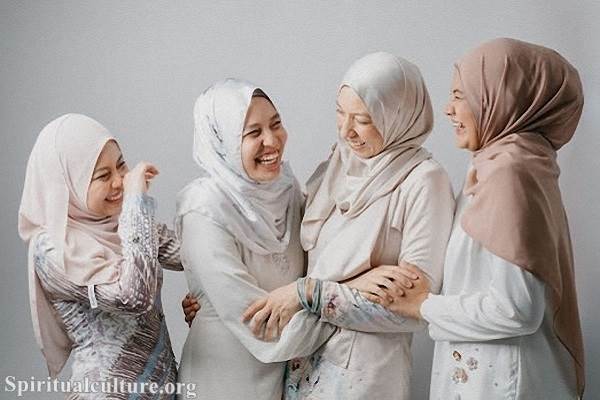In Islam, self-love should not be taken to the extreme of narcissism or self-worship, as the ultimate goal is to love and serve God above all else.
It is important to take care of oneself physically, mentally, and spiritually, but this should be done in a way that is mindful of one’s obligations to others and God. It is also important to recognize that all blessings come from God, and to be grateful for them.

Here are a few more points about self-love in Islam:
- Islam teaches that all human beings are created by God, and are therefore valuable and worthy of respect. This includes oneself.
- Self-love in Islam is not about indulging in pleasure or seeking material possessions for their own sake. Rather, it is about cultivating a sense of self-respect and self-worth that enables a person to fulfill their responsibilities and obligations to God and others.
- It is important to maintain a healthy balance between self-love and humility. Pride and arrogance are considered to be negative qualities in Islam, and it is important to recognize that all good things come from God and to be grateful for them.
- Islam encourages Muslims to improve themselves spiritually and in terms of their character and behavior. This includes striving to overcome negative habits and behaviors, and working to develop positive qualities such as compassion, kindness, and generosity.
- Taking care of one’s physical, mental, and spiritual well-being is important. This includes getting enough rest, eating a healthy diet, engaging in physical activity, and praying and reflecting.
- Self-love in Islam is not about seeking attention or admiration from others. Rather, it is about developing a sense of self-respect and self-worth that enables a person to fulfill their responsibilities and obligations to God and others.
- Islam teaches that all human beings are equal in the eyes of God, regardless of their circumstances or background. This means that it is important to treat others with kindness, compassion, and respect, regardless of whether they are wealthy or poor, powerful or powerless.
- Islam encourages Muslims to be grateful for the blessings God has given them and to share these blessings with others. This includes not only material possessions, but also things like time, knowledge, and skills.
- It is important to recognize that everyone has their own unique strengths and abilities and to use these for the benefit of others. This includes working to improve oneself and to develop one’s skills and talents.
- Islam encourages Muslims to be patient and persevere in facing challenges and difficulties. This includes learning to love oneself despite one’s flaws and mistakes and overcoming negative habits and behaviors.
- In Islam, self-love is not about indulging in pleasure or seeking material possessions for their own sake. Rather, it is about cultivating a sense of self-respect and self-worth that enables a person to fulfill their responsibilities and obligations to God and others.
- Islam encourages Muslims to be mindful of their thoughts and actions and to strive to be the best versions of themselves. This includes overcoming negative habits and behaviors and developing positive qualities such as compassion, kindness, and generosity.
- It is important to recognize that all good things come from God, and to be grateful for them. This includes not only material blessings, but also things like good health, loving relationships, and opportunities for personal growth and development.
- Islam teaches that all human beings are equal in the eyes of God and that it is important to treat others with kindness, compassion, and respect. This includes not only one’s friends and family but also strangers and those who may be different from oneself in some way.
- Self-love in Islam is about cultivating a sense of self-respect and self-worth that enables a person to fulfill their responsibilities and obligations to God and others, while also being mindful of the needs and feelings of those around them.



